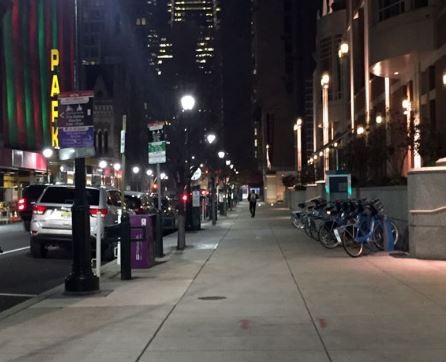There’s no doubt that caring for aging parents is a burden. Most of us understand that, as their minds and bodies decline, they will require more of our time and financial resources, even if their retirement savings are adequate. I suppose that most of us ignore the eventuality of this until we are faced with the reality that our parents can no longer maintain real independence. Once the fear wears off, we must begin the task of discerning how to be good to our parents while still meeting our own family and professional obligations.
Random Spotter has been reflecting on these challenges as my own parents have come to need this level of support. Although it’s a painful experience, there are positives. For one, it is good to know that my parents are not neglected. For another, I am happy to report that I am mostly the person I thought myself to be. More on that in a minute.
I think the more difficult lessons of this experience have to do with siblings and relatives. I’ve read that it’s not unusual for one person to assume a greater responsibility for aging parents. This seems reasonable since one sibling may live far away, another may have limited financial resources, or there may be other restrictions that impede a person’s ability to help. Understanding this encourages the necessary flexibility that allows everyone to participate in this delicate partnership. But, this passage exposes a lot about us, and we can learn things about one another that we wished never to discover.
What has this revealed to the Random Spotter? Mostly, two things.
- Lesson #1: I’m not that bad, and I do correct past mistakes. When this all first began, I allowed a sibling to carry the load because I live in a different state. But, I felt a discomfort that I interpreted as an important cue: I could do more. So, I made changes. And, I committed to do more to relieve my over-burdened sibling because, when one individual takes on a majority of these duties, it is a wearisome sacrifice. The cost to the primary caregiver is too significant, even if it is accepted willingly. I see that very clearly now, and I’m glad that my conscience invited me to act differently.
- Lesson #2: We don’t know our family like we think we do. Another revelation from this process has been that, regardless of our shared upbringing, the adults we become can be very different from our shared history. While some of us may see duty and need clearly, and step up to do more, others will not. (To be clear, I am not exclusively referencing financial assistance but things like covering evenings and weekends for one another.) And, even after the most gut-wrenchingly honest discussions about sharing responsibility for the care of those who gave us life and the opportunities of our youth, not everyone has been moved to action. It’s been a very sad insight to Random Spotter that I barely recognize my siblings. I’m sure it’s odd to them, too, that I would expect so much when their desire to act is limited. I was naïve to feel that we were still the same people who lived under the same roof decades ago.
The true sadness now is that I feel very estranged from my siblings, so much so that it feels like the only things we have in common are the aging parents about whose support we don’t agree.
This is a difficult topic for all of us, and it’s nearly devastating when there is a lack of agreement about the sacrifices of time (and money) that must be made for our parents. Random Spotter is coping and solving his way through it, and this post helps. Hopefully, there’s some value for others in these words, too.
